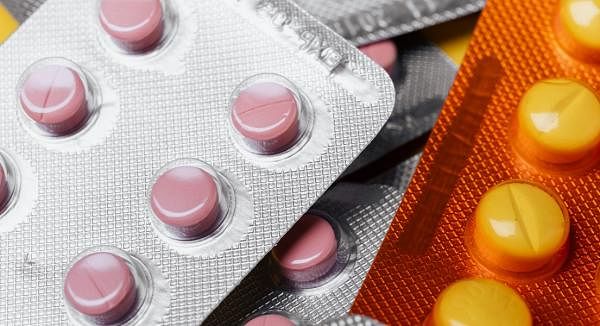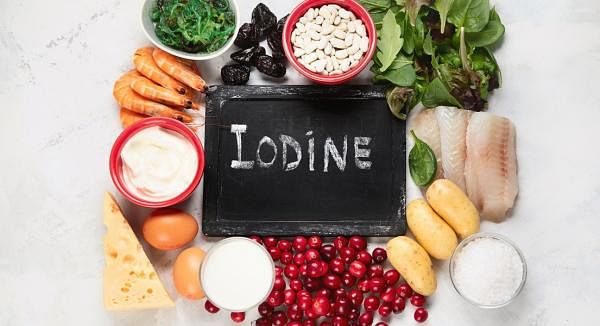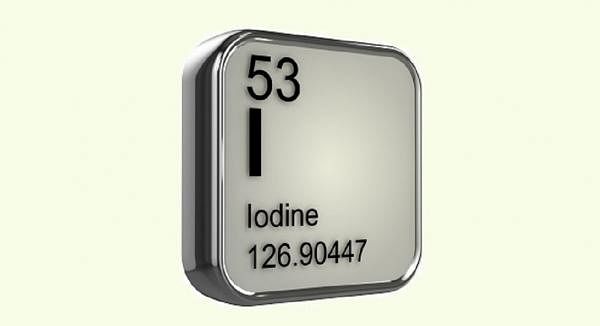Ingredient Focus: Iodine
Why you can trust Nutri Advanced Every article on our site is researched thoroughly by our team of highly qualified nutritionists. Find out more about our editorial process.
Iodine is an amazing mineral - the stability of the earth’s ozone layer relies on atmospheric iodine levels - and that’s just one of many mind blowing facts about iodine! Much of the scientific research however has focused on its key role in the environment rather than its role in human health.
What we do know about iodine in relation to human health is that it is a key constituent of thyroid hormones, and this is where much of the research is currently focused.
• The thyroid gland is responsible for controlling our metabolism and it controls multiple body systems to achieve this, including metabolic rate, body temperature, heart and digestive function, muscle control, brain development and bone maintenance.
• The thyroid gland produces several important hormones including large amounts of thyroxine (T4) and small amounts of triiodothyronine (T3). These hormones are made up from molecules of tyrosine and iodine and therefore the thyroid glands correct functioning depends on having enough of both of these in the diet.
• Tyrosine is a non-essential amino acid found in a wide variety of protein sources. Adequate levels of iodine however are much less easy to obtain from dietary sources. Iodine is a rare element in many soils because it is highly water soluble and vulnerable to leaching by rainwater.
Iodine deficiency is a significant global problem – it now affects around 2 billion people globally and is considered to be the leading preventable cause of intellectual disabilities. A recent survey of UK iodine status found that more than two-thirds of schoolgirls aged 14-15 years were iodine deficient due to reduced milk intake. National programmes to add iodine to salt are the primary strategies in place for improving iodine status.
Supplementation in the form of a liposomal liquid is considered to be an effective way to optimize levels if deficiency has been identified. A liposome is a tiny bubble (vesicle), made out of the same material as a cell membrane. Liposomes can be filled with dietary supplements, and used to deliver these supplements more effectively as they have an ability to entrap both water soluble and insoluble substances and deliver them into desired environments.
This website and its content is copyright of Nutri Advanced ©. All rights reserved. See our terms & conditions for more detail.
Nutri Advanced has a thorough research process and for any references included, each source is scrutinised beforehand. We aim to use the highest value source where possible, referencing peer-reviewed journals and official guidelines in the first instance before alternatives. You can learn more about how we ensure our content is accurate at time of publication on our editorial policy.
Most Popular Articles
-
7 Surprising Ways To Support Your Magnesium
If you are displaying signs of a magnesium deficiency, here are 7 ways to boost your magnesium levels that are easy to incorporate into your daily life. -
5 Best Vitamin C Supplements Picked By Our Experts
Learn more about the different types of vitamin C, the different benefits you get from different types, and what you get for spending more on a good supplement. -
Top 5 Vitamins For Energy And Tiredness Picked By Our Experts
The 5 best and most important vitamins for energy & tiredness including B vitamin food sources & best supplement forms for energy. -
Benefits of Myo-Inositol for Polycystic Ovary Syndrome (PCOS)
In this research review article, we take a closer look at a lesser-known natural compound called myo-inositol that has been found to have significant potential to improve many of the prevalent features of PCOS. -
Top 10 Reasons to Give Your Kids Omega-3
Read the top 10 reasons that kids should have plenty of Omega-3- an essential fatty acid- including for depression, brain function, sleep & reading/maths skills.












